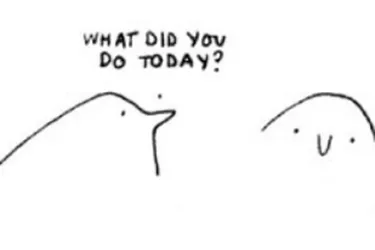The importance of routine
Building a routine you can stick to in daily life may not sound important, but for some people routine is what helps to keep them grounded. Claire blogs about her experience of the difference in life with, and without, routine.
Having been mentally and physically strong all my life, fifteen months ago I crashed. Big time. I have only just returned to work following a year of absence. After 16 years of working full-time, this was a great shock to me. It was incredibly hard. It was a year during which I lost all the energy, enthusiasm and vitality that had previously come so naturally to me. I lost interest in myself and in those around me and spent the first couple of months essentially clinging to the sofa.
I was referred for therapy but, although I thought it was a good idea, it didn’t start brilliantly. My therapist seemed too young and naïve to understand what I was going through. Besides, I couldn’t bear the fact that she spent so much time talking about the importance of a routine. Of exercise. Of eating well. Of sleeping regular hours. She’d ask me to tell her what I had done the day before; and what I’d be doing the following day. It seemed like such a waste of time – this was all common sense but I certainly didn’t have the energy or the willpower to stick to a routine at this moment in my life!
"I sat on the sofa and tried to calm the rising panic in my chest."
To my great surprise, things changed one day and so too did my perspective. Having worked from home for a couple of weeks to keep me company, my husband decided to go into the office. By 8.30am the house was silent. He had gone and my daughters had left for school. I sat on the sofa and tried to calm the rising panic in my chest. The silence was deafening. I had nothing to do. Nowhere to go. No-one to speak to. What was I supposed to do all day? I vaguely recollected conversations with my therapist. Perhaps this was what she meant about the need for routine?
In the months that followed, I tried hard to carve out a routine for myself. Early morning walks with the dog; healthy eating (giving up beer was the hardest part); and lots of exercise. Most days I would have preferred to roll over and go back to sleep. But, most of all, the exercise was good for tiring out my whirring mind and calming the adrenalin that constantly pumped around my body.
"I found myself alone, under the effects of alcohol and in a very risky situation."
After six months, I began to feel better and consequently complacent. I suddenly started to feel less of a need to force myself to exercise on a daily basis. My poor appetite had improved and I started to eat too much of the wrong things. As well as this, my better mood gave me the excuse I needed to buy beer again as I no longer felt at risk of it bringing me down.
Three weeks on I found myself alone, under the effects of alcohol and in a very risky situation which led my husband to rush to the beach from work to ‘make me safe.’ Following a number of beers, I had put my life in danger without any concern for the consequences. Understandably, both he and my therapist asked me why. Why after a period of apparent stability did my mood escalate from one to a hundred so suddenly? The explanation from me that I had received an upsetting email seemed to hang in the air and mock me as they stared at me in despair.
"And there you have a perfect cocktail for a crisis."
Following extensive dissection of the day’s events, I had to admit that the weeks preceding that day had contributed too. Although it seemed minor at the time, by stopping exercise, eating crap and drinking beer every day, I’d pressed the self-destruct button long before. By the time that day arrived, and I received an email I felt I couldn’t cope with, I was in no state to deal with it. Lack of exercise meant I was wired with adrenalin; a rubbish diet meant I felt lethargic; and I’d become convinced I needed beer to help me relax.
And there you have a perfect cocktail for a crisis. The debate about what constitutes self-care has been discussed a lot recently. I’ve come to realise that what once would have been a lazy few weeks in my life, can now actually compromise my mental health. So, if I choose to decide to abandon my routine, I either have to be sure that I am feeling particularly mentally strong or, that I am ready to accept the consequences.


Information and support
When you’re living with a mental health problem, or supporting someone who is, having access to the right information - about a condition, treatment options, or practical issues - is vital. Visit our information pages to find out more.
Share your story with others
Blogs and stories can show that people with mental health problems are cared about, understood and listened to. We can use it to challenge the status quo and change attitudes.

















